You might not have heard of Basile Aloy, but he’s a part of one of the most powerful (non Royal) families in Europe – the Saverys, who possess a shipping empire and a combined wealth of many hundreds of million dollars. They run a bunch of shipping companies you also probably haven’t heard of, and are based in Belgium.
But why are we talking about shipping, I hear you ask…?
Well, when the Saverys used some of that money to buy out the prestigious Avignonesi vineyards in 2009 (who are known for super high quality, Italian wine, produced biodynamically) – Basile began running the show. In fact, as Avignonesi’s COO, Basile’s been heading it up ever since.
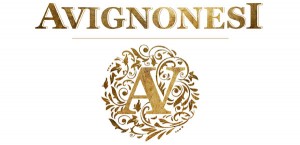
And so, having tried Avignonesi for myself last year, I figured that it’d be worth talking to whoever was behind all this bloody good wine (and it is bloody good, you want to try the Vin Santo, oh yes). So I did what I always do, which is try to get someone to commit to an interview…
Eventually I managed to get in touch with Basile. So I asked him his opinion on keeping dinosaurs (not actually possible but one of our recurring themes), the practicalities of running a vineyard, what Italian bureaucracy do and what exactly biodynamic farming is all about.
Wanna know about all this stuff and more? (you must say YES) – then read on for an educational (brief), behind the scenes look at the wonderful world of wine.
Salute! (or should that be Gezondheid?)

Name: Basile Aloy
Role: COO
DOB: 08.10.87
Birthplace: Antwerp, Belgium
Current Affiliation: Avignonesi
Twitter: @avignonesi
Site: www.avignonesi.it
Fun Fact: I’m very good at imitating voices and accents
J: Your family have been in charge at Avignonesi since 2009 right? Though as I understand it, you guys have a heck of a lot of other business interests as well! Is wine in your blood, would you say? And how did you end up working at Avignonesi as oppose to one of your family’s other ventures? Is it the only thing you work on at the moment?
B: In the best family tradition, I would have to say that shipping is in my blood, and in fact in January next year I will be returning to the shipping business.That said, I love wine and I love working with wine, in fact when my family decided to enter the wine business, I immediately started studying winemaking to be able to give a real contribution to Avignonesi. It is obviously a privilege to be able to test your abilities in more than one field, and I would be a fool not to learn as much as I can from each business.
Could you give us a little insight into how you do it – from grapeseed to the final bottled delight? I tried a variety of your wines last year and I must say that they were something spectacular. How does it all work, and what do you do that makes your wines stand out?
I know it is customary for winemakers to say that they make wines from terroir, but I truly believe that it is the terroir, understood in its broadest sense, which defines the character of our wines.
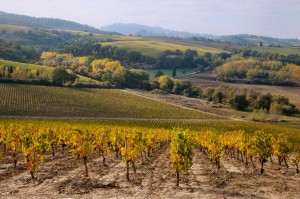
We are today the largest Italian winery which applies biodynamics to all our vineyards, and we do this not only because we believe we have the duty to treat our land the best we can, but because we believe that a healthy soil is the right growing field for wines which unveiled reflect their territorial and varietal characters.
How on earth do you guys make your Vin Santo? It’s one of the most memorable things I’ve ever imbibed…
Vin Santo is quite a secretive wine, even for us. We do our part as we pick only the very best, healthy, perfect bunches in the vineyards which we carefully lay out on straw mats to dry for a few months before they are slowly pressed. The sweet must is put into small 50 litre oak casks called “caratelli” together with a generous portion of “madre”, our own, century-old yeast, which is specialized in the fermentation of must with a high sugar content.
The casks are then sealed with wax and we wait for 10 years, as the wine goes through a slow fermentation and ageing process which gives it its unique, unforgettable character.
What’s your ultimate aim and goal for Avignonesi? If you could achieve anything with it, what would you pick? Shoot for the moon…
That Avignonesi be recognized as the standard bearer for the expression of terroir in Montepulciano.
What was the biggest challenge that you’ve had to overcome and what did you learn from it?
Dealing with Italian bureaucracy. What did I learn? A lot about how NOT to do things in the most efficient way.
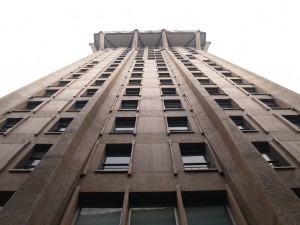
~ Hyman Rickover
How do you guys deal with disastrous years, when the weather harms/threatens/kills your grapes?
Fortunately our vineyards are spread out over 10 separate estates, which means that if we are unfortunate to have damaged grapes in one vineyard, which actually happened this year, when a hailstorm hit one of our Sangiovese estates, we can still count on the other estates. While there are quite big differences weather-wise between one vintage and another, Tuscany is fortunately stable enough, weather-wise, that we can almost always produce good wines.
Which variety of grape is easiest to work with? And which is hardest?
Sangiovese is notorious for being the “bad boy” of Tuscany, while it is also the main variety of the region’s most famous wines, such as Vino Nobile, Chianti or Brunello. It gives a lot of hard work, but when everything clicks there is nothing more quintessentially Tuscan than a full-blood Sangiovese.
Merlot, for example, is usually easier to handle, as it ripens earlier and the extraction process is easier to handle.
Who’s the person who’s most inspired you in your work – food industry or otherwise. Is there anyone that you draw inspiration or strength from? Do you have any specific culinary influences?
Machiavelli, when running a business or running a state there are some similarities. You have to be smart and diplomatic.
For culinary influences I would probably look to my mother and her partner who have introduced me all along my youth and adult life to new foods, new cuisines and have taught me to broaden my pallet by trying everything.
In your very professional opinion, what makes a good wine and how can we spot them? I assume you’re a drinker of the vino and wonder how you choose for yourself…
A good wine is an authentic wine, a wine that is able to speak of the terroir where the grapes are grown. How can we spot them: No other way than to open and taste. Explore different regions and varieties to form a personal feeling for what they have to offer.
Any tips on wine pairing you can share?
Wine pairing is such a personal thing.
Of course there are basic rules like white with fish and full-bodied red with steak, but I always say that one should choose to drink what one likes. A rule of thumb is to choose a wine, which complements the dish one is eating. That is, if a dish is quite sweet, usually a wine with a fresh, fragrant element would complement it well or if a dish is fresh, with a dominant acidic element, a fruity wine would go well.
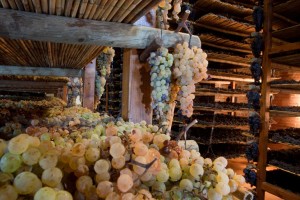
What’s a ‘day in your life’ like? Could you give us an insight into the wine industry? Is it tough, easy?
We are harvesting right now, so let me describe a day of harvest. Being mainly involved in production, I go to the winery early to check out the grapes coming in and talk to the winemakers and agronomists to discuss the work of the day. You can often see me climbing on top of the big vinification tanks to check on the must fermenting inside, or handling some piece of machinery.
I mostly spend the afternoons in the office, getting headaches while dealing with administrative matters (and Italian bureaucracy!) and I am often spotted in the staff kitchen begging food from someone as I always forget to bring my own. Late in the afternoon I go back to the winery or in the vineyards to check on the grapes and taste the wines etc. etc. During harvest, days can become really long, but this is the culmination of an entire year’s work, so relax, free time (and sleep) can wait.
If you weren’t in the wine business, what would you be doing instead?
Shipping
What’s your vineyard’s philosophy, summed up in a sentence?
Terroir speaks; we listen
What does the great British public need to know about Avignonesi and biodynamic wines? What one thing would you tell them, if you had a megaphone and the entire country’s ear?
Where good wine is appreciated by all wine lovers, quality wine from a vineyard which preserves the natural balance of the soil and local biodiversity of flora and fauna, in addition to enhancing the natural character of the grapes, has something more to offer. Buying an Avignonesi wine is buying a wine with a story to tell and a personality to discover.
What are your personal most and least favourite alcoholic drinks?
I love wine, always have.
I really have no taste for rum.
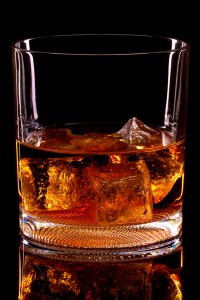
And your personal most and least favourite foods?
Beef Wellington is my favourite dish and, ironically enough, being Belgian, I hate Brussels sprouts.
What advice would you give to aspiring food entrepreneurs/wine producers who’d want the kind of results that you’ve had?
At the age of 26 I don’t really think I should be giving advice. [Ed: Oh, snap]
What do you enjoy most and least about what you do?
When you produce wine you work with nature, which I love, and all your efforts are always measured in long term because you have to follow nature’s rhythm. Think about planting a new vineyard. From the time you plant until you have grapes to pick at least 3 years pass. Add to this ageing time in oak and you easily reach 5 years before you are actually able to sell a bottle of wine on the market. It teaches you patience and it teaches you to put all your efforts into perspective.
I find great satisfaction in seeing the positive evolution in our vineyards and subsequently in our wines that we’ve been seeing and that we will be seeing.
I can only repeat that I would not miss having to deal with the Italian Administration
If you had to go back again and start over, what, if anything, would you do differently?
Would you believe me if I said nothing? Maybe we haven’t had the time yet to realise that we missed something.
Where next for you and Avignonesi?
For me next is shipping. I want to broaden my horizon and learn my family business. Obviously I will always be keeping one eye on Avignonesi.
For Avignonesi we are on the road to obtaining organic certification, so that’s a concrete goal right now which will consolidate the steps we have taken over the past 2 years to convert the winery to biodynamics. We have also completed the expansion plans we had set for the winery, reaching a total of 200 hectares of vineyards, in addition to acquiring a new vinification and ageing facility, so from now on it’s full steam ahead. The direction has been set.
If you had to have any character from Greek mythology come and work with you at Avignonesi, who would you employ?
Ulysses. I admire his ability to cope with every situation which arises. He is not only strong and intelligent, but also clever and cunning in his way with other people.

… you have acquired a pet T-Rex and are morally obliged to look after it. It is 13 ft tall at the hips , eats half a ton of raw meat a day, and likes taking long walks. What would you call it and what would you do to keep it entertained and housed?
It would make the perfect vineyard-help to pull out old vines and I would keep it at our old office facility, which is huge and used to be a tobacco plant.
The name: Fifi.
